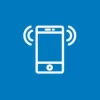Here, independent online comparison service moneyland.ch answers key questions about using mobile hotspots both in Switzerland and abroad.
1. What is a mobile hotspot?
A mobile hotspot is a mobile WLAN router through which multiple devices such as laptops, tablets and smartphones can connect to the Internet via a mobile network (3G, 4G, 5G). The mobile hotspot works just like a home WLAN. Your devices connect to the mobile hotspot, which in turn is connected to the internet via a mobile data connection.
Stand-alone mobile hotspots are offered by Huawei, TP-Link, Netgear and many more manufacturers. They are sometimes branded as LTE hotspots or mobile Wi-Fi routers. In Switzerland, mobile hotspots are sold by Swisscom, Sunrise and many online merchants.
You can use most smartphones as personal hotspots using the tethering function. This lets you connect other devices (laptops, for example) to the Internet using your phone’s mobile data connection. When you activate tethering on your phone, your phone acts as a modem and lets you connect your devices to the Internet.
2. How do mobile hotspots work?
A mobile hotspot connects to the Internet via a mobile service provider. The hotspot also provides a WLAN to which you can connect multiple devices. Devices connected to the mobile hotspot by its WLAN can connect to the Internet via the hotspots Internet connection.
3. When is buying a dedicated mobile hotspot worth it?
Buying a stand-alone mobile hotspot can make sense if you want to frequently connect to the Internet on multiple devices while traveling.
Hotspots let you connect to the Internet using devices which do not have mobile network connectivity. For example, many tablets come in two versions, with the cheaper version only having WLAN connectivity with no option to install a SIM.
An advantage of using a separate mobile hotspot to connect your phones to the Internet is that you avoid power-hungry mobile data connections which drain your phone’s battery.
Last but not least, using mobile hotspots in combination with local SIMs while traveling outside of Switzerland helps you avoid roaming charges. You can connect your devices to the Internet at local rates while keeping your phone numbers active.
4. Which devices can I connect to mobile hotspots?
Any device with a wireless network connection can connect to a mobile hotspot. Virtually all modern mobile phones, tablets and laptops have wireless network capabilities. Smart watches, e-book reading devices and many other devices now typically come with wireless network connections and can connect to the Internet via mobile hotspots.
You can also connect wireless-network-capable devices to your phone via tethering to use your phone as a hotspot.
5. When should I use my phone as a hotspot with tethering?
Tethering lets you connect other devices to the Internet using your smartphone and mobile data connection. Your phone effectively becomes a WLAN Internet hotspot.
The biggest disadvantage of tethering is that it requires a lot of electricity and quickly exhausts your phone’s battery. Tethering works well if you only occasionally need to connect devices to the Internet for short periods of time while traveling.
If you frequently need to use the Internet via a mobile hotspot, getting a dedicated mobile hotspot is advantageous as you avoid exhausting your phone’s battery.
6. What are the advantages of using a separate mobile hotspot?
The biggest advantage of using a dedicated mobile hotspot instead of tethering is that it uses its own battery so you do not need to exhaust your phone’s battery. Mobile hotspots are compact and easy to carry with you.
A major advantage of using a dedicated mobile hotspot over using smartphone tethering is that the Internet connection is not impacted by phone calls. Making or receiving calls on your phone while using it as a tethering hotspot drastically reduces the bandwidth available for Internet use. Depending on the phone you use and the number of devices connected to it, the Internet connection may be throttled during phone calls to the point of being unusable.
A mobile hotspot can also allow for more efficient use of bandwidth than smartphone tethering when you connect multiple devices. For example, your friends and family members can all share the mobile hotspot connection at the same time. Doing this makes sense if the mobile plan or prepaid SIM used for the mobile hotspot includes unlimited mobile data in its flat fee.
Mobile hotspots have advantages for international travel, because you can simply install local prepaid SIMs in countries you visit and use local prepaid mobile data bundles. Depending on where you travel and which Swiss mobile plan or prepaid mobile service you use, doing this can be enormously cheaper than using data roaming.
7. What are the disadvantages of mobile hotspots?
A disadvantage of mobile hotspots is that your devices recognize it as a WLAN connection rather than a mobile connection. Data-consuming functions like app and system updates which you have blocked from using mobile data connections will still run when you connect to a mobile hotspot. This can result in the consumption of large amounts of mobile data.
Because mobile hotspots lend to increased data usage, using them is primarily recommended if you have an unlimited-data mobile plan or prepaid mobile service. It is perfectly possible to use mobile hotspots with limited-data plans and prepaid services, but if you do, keep close tabs on your data usage to prevent high costs.
8. Do I still need a fixed home Internet connection if I have a mobile hotspot?
In many cases, a mobile hotspot is not an adequate replacement for a fixed broadband Internet connection. Mobile data connections are subject to significant bandwidth fluctuations. If many devices in a given area perform data-intensive tasks at the same time, the bandwidth of mobile beacons in that area may not be sufficient. This can result in slow Internet connection speeds.
In addition to the limited capacity of mobile networks, many houses are heavily insulated. Using a mobile hotspot in a well-insulated house results in very high radiation levels and increased power consumption.
However, if you and your household do not perform data-intensive tasks, a mobile hotspot may be sufficient.
9. How do I activate tethering?
To activate tethering on your iPhone, open settings, select cellular (settings) and then select personal hotspot. This open a dialog box in which you can activate the hotspot and view the network password.
On Android devices, open settings, select network and Internet, then select hotspot and tethering. Tap the Wi-Fi hotspot option. This will open a dialog page on which you can switch tethering on and off and view or change the network password.
Tip: If you want to use your phone as a tethering hotspot over a longer period of time, make sure that the battery is sufficiently charged. Transmitting data via both a mobile network and WLAN at the same time will deplete your phone’s battery fairly quickly.
If you use your smartphone as a tethering hotspot in combination with a laptop, connecting it to your computer with a USB cable lets it recharge from your laptop’s battery.
10. Can I use a mobile hotspot outside of Switzerland?
Yes. In fact, mobile hotspots are very practical for international travel. This is particularly true if the free WLAN connections offered by many hotels and cafés are not sufficient for your Internet needs.
Simply buy a prepaid SIM and install this into your mobile hotspot device. In many countries, you can buy prepaid SIMs with large data bundles for the equivalent of a few Swiss francs.
The advantage is that you continue to be reachable at your Swiss phone number while simultaneously using a local SIM to connect to the Internet. You pay local rates for mobile data rather than unfavorable data roaming rates.
Important: Having your Swiss mobile service provider deactivate data roaming or deactivating data roaming on your phone before your travel outside of Switzerland is recommended. This will help you avoid generating high data roaming charges.
11. Which mobile services should my mobile hotspot support?
Your mobile hotspot should support the 4G/LTE and 3G/UMTS mobile network standards. If you want to take advantage of the higher Internet speeds offered by 5G networks, then your hotspot should support the 5G standard as well.
If you want to use mobile hotspots outside of Europe, you should also make sure that a mobile hotspot supports the frequency bands used in the countries you plan to visit.
12. What plans and prepaid mobile services are suitable for mobile hotspots?
Mobile hotspots lend to using large amounts of mobile data. The easiest and most convenient solution is to use mobile plans or prepaid mobile services which include unlimited Internet in their flat fees.
If you use a plan or bundle with limited mobile data, make sure that the service provider will not charge you additional fees once your data allowance has been exhausted.
Swisscom markets its inOne mobile data XL plan as a special mobile hotspot plan. The plan includes 30 gigabytes of mobile data and costs 49 francs per month.
Sunrise offers four different plans for mobile hotspots: Mobile Internet Start; Mobile Internet Comfort; Mobile Internet Unlimited; and Mobile Internet Unlimited 5G. The most affordable of these costs 9 francs per month and the most expensive costs 59 francs per month. All four Sunrise plans include unlimited local mobile data in Switzerland in their flat fees. The more expensive the Sunrise mobile Internet plan, the faster the data connection.
Salt offers three plans which are well-suited to mobile hotspots: Surf 5 GB; Surf 50 GB; and Surf Unlimited. The two smaller plans include 5 gigabytes and 50 gigabytes of local mobile data per month respectively. The Surf Unlimited plan includes unlimited local data. The plans cost between 9.95 francs (Surf 5 GB) and 35.95 francs (Surf Unlimited) per month.
The provider Digital Republic specializes in subscriptions with unlimited Internet access. Customers can choose from different subscriptions with different speeds. A 10 Mbps subscription costs 10 francs per month, while the fastest subscription with up to 2 Gbps costs 40 francs per month.
Some Swiss telecom service providers offer unlimited data bundles for prepaid mobile.
The interactive mobile plan comparison on moneyland.ch makes it easy to find the best plans or prepaid offers for mobile hotspots. Simply choose the profile that suits you best under “Local mobile data” or select “Individual profile” to enter an exact amount of data. In the other fields, select “No phone calls” and “No international calls.” If you need data roaming, select the adequate profile under “Roaming while traveling abroad” and add your anticipated travel destinations.
More on this topic:
Compare Swiss mobile plans (including data plans)

 Deal of the Day
Deal of the Day 






